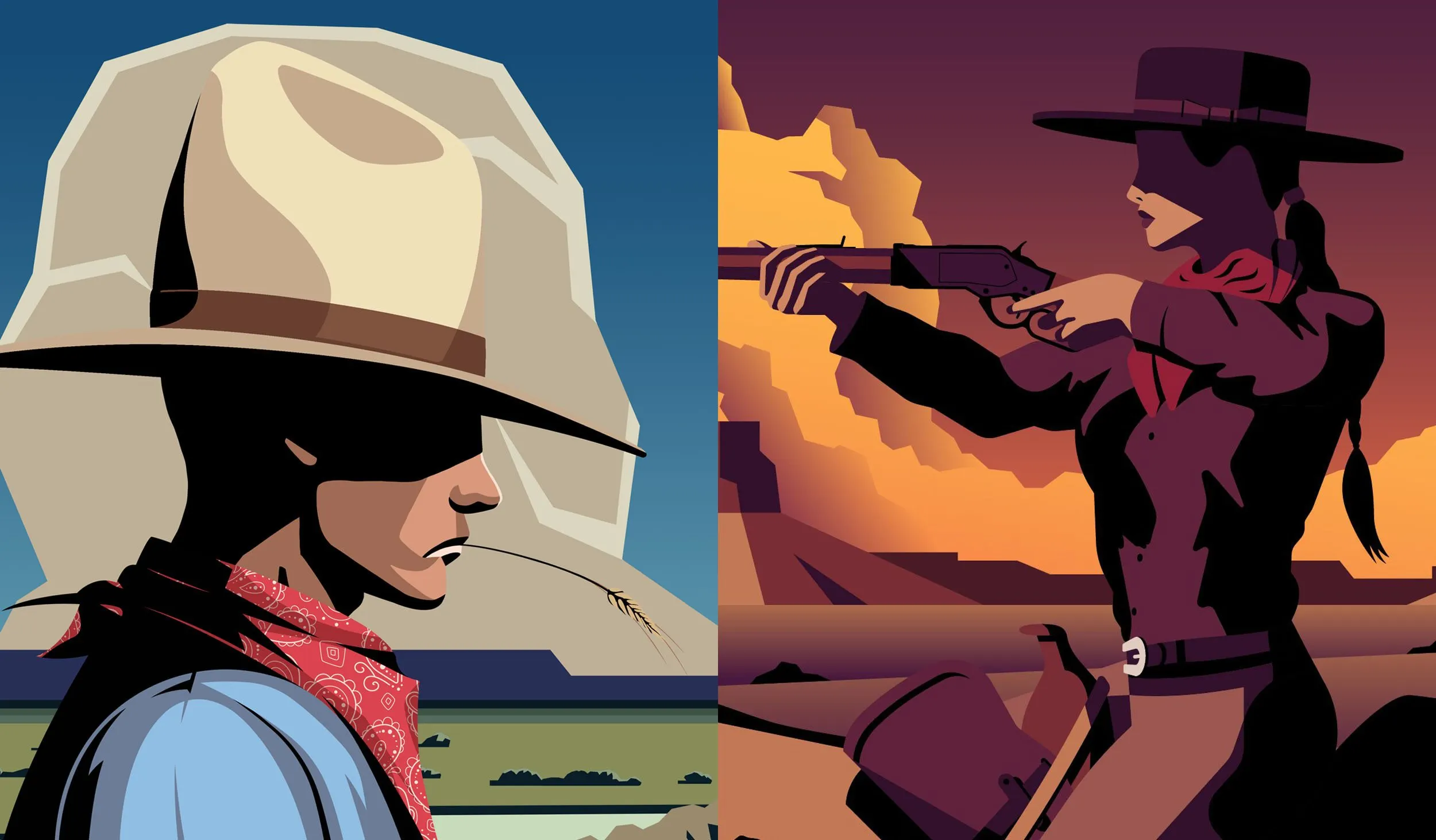Is the NFT art scene big enough for two Western-themed art styles? A recently-launched NFT collection titled "Outlaws" has some collectors saying its creative approach treads a bit too close to the work of artist Jeremy Booth.
A collection of 10,000 profile picture (PFP) NFTs, Outlaws’ public mint took place last Wednesday where collectors could mint the digital collectibles for 0.05 Ethereum each. They have since sold out, and on OpenSea, the cheapest Outlaws NFT currently goes for 0.067 Ethereum, according to the marketplace’s website.
Describing it as a moral grey area, one self-described NFT artist named Sadboi said the Outlaws project left them feeling “conflicted” on Friday. From their perspective, it is an “obvious reproduction of what another artist is doing.”
The statement was an allusion to Booth, a well-known artist in the NFT space that takes a minimalist and cinematic approach to Western-themed art. His recent series titled “Dirt” is one of several examples where the artist has cultivated a distinct style for capturing landscapes and characters over time.
One observant Twitter user pointed out that the lines between plagiarism and inspiration can often blur in art. And the speculative nature of many NFT projects can bring a heightened sensitivity or awareness to similarities between what artists create.
The pseudonymous art curator Artifaction² described the accusations of plagiarism as somewhat overblown, suggesting that people look deeply at the history of Western-style art before making any claims.
“The NFT space has a truly bewildering set of collectors and keyboard warriors that believe any inspiration taken from any artist is a rip off,” they wrote. “Just take the image and do a Google image search and you’re gonna find icons that have been executing this style [...] for over half a century.”
Outlaws and Booth’s Western-themed works certainly share some similarities, beyond their heavy use of cowboy hats and wide-open landscapes: their backgrounds are both composed of satisfying, simple shapes, and subjects’ facial features are often accentuated by deep dark shadows.
Yet, elements of both Outlaws and Booth’s Western-themed NFTs echo a set of posters created between 1938 and 1941 by Works Progress Administration artists for the National Parks Service, which capture settings like the Grand Canyon and Yellowstone.
Outlaws described its roots towards the beginning of April—prior to any controversy regarding the project’s style—touching on several elements in detail, from how its backgrounds were selected to how the collection’s overall color palette was picked.
In the blog post, the project also lists a handful of artists as influences for its Western look, such as “Frederic Remington, Charles Marion Russell, and Albert Bierstadt.” In terms of how characters are styled, the post references iconic Westerns like “The Good, The Bad and The Ugly” and “The Magnificent Seven.”
“By drawing inspiration from such a diverse range of artists, we aimed to create a collection that celebrates the rich history and culture of the American West while also offering a fresh and exciting perspective on the genre,” it states.
On Twitter, Booth made clear to his followers that he’s not affiliated with Outlaws, calling it a red flag that his name was mentioned by the project’s official Twitter account when it was reaching out to prospective collectors.
In response, the Outlaws Twitter account pointed to other artists, such as Malika Favre and Levente Szabo, as examples of creators that laid the groundwork for the PFP collection’s flat style. It added that Western-themed art is far from new, and the project never tried to represent itself as part of Booth’s work.
“We’ve never tried to pass [off] that we are him and have been clear on that,” the account wrote. “Please take a moment to compare one of his portraits to ours—if you look closely the difference is actually significant.”
Additionally, the Outlaws account pointed out that it retweeted a statement from Booth on April 4 that said he’s not affiliated with the project back.
In a separate Tweet, Booth stated that the project’s style isn’t where he took issue—rather, he objected to how he was namedropped in private messages and tagged in some of the collection’s promotional content.
Booth told Decrypt he wants to move on and focus on creating more Western art as opposed to discussing the situation further. Outlaws did not immediately respond to requests for comment from Decrypt.
As of Sunday afternoon, Outlaws was listed as a trending project on OpenSea’s home page. And the collection had done 2,668 Ethereum in total sales volume, or over $5.6 million, according to OpenSea’s website.
While the release of Outlaws “certainly” had an impact on Booth, he said he’s making “a conscious decision to be better than bitter” on Twitter. He said, “I’ve been doing this for a long time, I’ll still be here when the smoke clears.”
Daily Debrief Newsletter
Start every day with the top news stories right now, plus original features, a podcast, videos and more.

